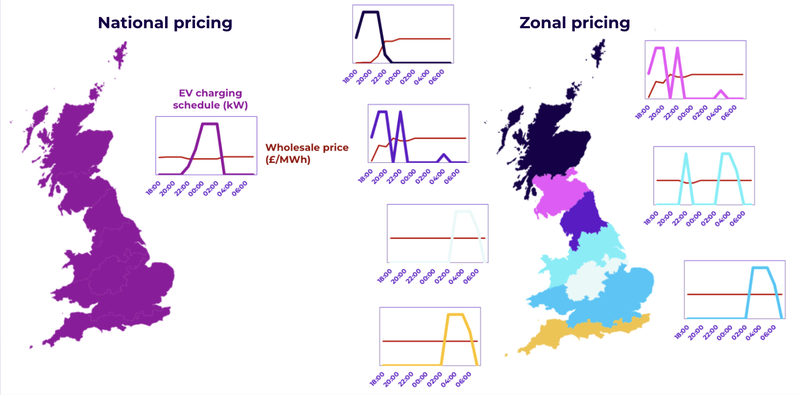New research has raised serious concerns about the potential impact of zonal energy pricing on UK consumers, claiming that the benefits may have been overstated. As the UK Government prepares to decide on the introduction of a zonal pricing system, the analysis from energy consultancy Afry highlights significant uncertainties surrounding the touted advantages of this approach.
The study suggests that the anticipated savings on energy bills from implementing zonal pricing could actually lead to increased costs for consumers. Specifically, the research estimates that this shift could impose an additional £9.6 billion burden on households if investments in the energy sector are negatively affected.
Tom Glover, RWE’s UK country chair, commented on the findings: “This new analysis shows that the claimed energy bill savings from zonal pricing are very uncertain and could have been overstated. There is a potential risk that the change could increase costs of the energy system—this analysis suggests a potential cost of £9.6 billion.”
Glover also emphasized that while stronger locational signals are necessary for the energy market, zonal pricing is not the solution. He stated, “We’d urge the Government to rule it out as soon as possible,” warning that it could lead to a higher cost energy system and create uncertainty for investors, complicating efforts to achieve the government’s Clean Power and Growth Missions.
The research was sponsored by RWE and several other energy developers and investors, including SSE and ScottishPower, indicating a shared concern within the industry about the implications of zonal pricing.
The analysis critiques previous modeling conducted by FTI for Octopus Energy, which claimed significant cost savings from a zonal market. According to Afry, these models were based on unrealistic assumptions about sustained high network constraints and did not account for existing measures to address these issues.
Afry’s analysis used the National Energy System Operator’s (NESO) Future Energy Scenarios 2024 (FES 24) Holistic Transition Pathway to evaluate the real-world outcomes of offshore wind deployment, projecting a more conservative estimate of 71GW by 2035, compared to the previously inflated 89GW.
The findings indicate that the projected benefits of moving to a zonal market could drop dramatically, from an initial £25 billion over the period from 2030 to 2050 down to just £8.9 billion. Afry warns that if the uncertainty caused by zonal pricing deters investment by as little as one percentage point, the benefits could flip to a £9.6 billion cost for Great Britain.

As the UK Government considers the future of energy pricing, this research underscores the need for a thorough evaluation of zonal pricing’s potential risks and rewards. With billions of pounds at stake, policymakers must carefully assess whether this approach will truly benefit consumers or lead to higher costs in the long run.
With the energy landscape rapidly evolving, the discussion around zonal pricing remains crucial for both consumers and investors. The findings from Afry serve as a crucial reminder that not all proposed solutions may lead to the positive outcomes they promise.



